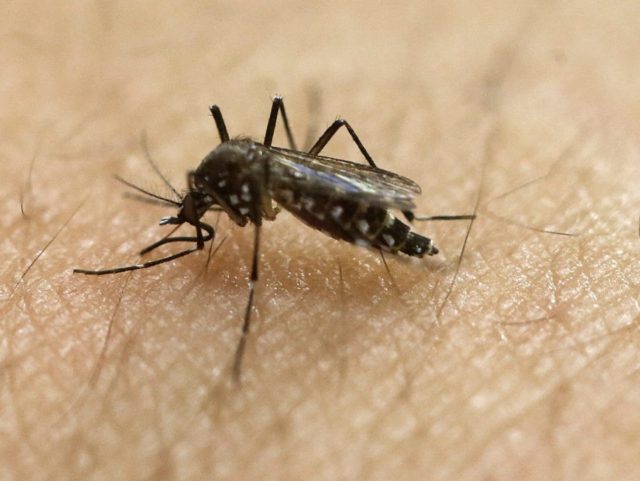Officials from the Texas Department of State Health Services (DSHS) announced the state’s first Zika case likely spread by a local mosquito.
“We knew it was only a matter of time before we saw a Zika case spread by a mosquito in Texas,” Dr. John Hellerstedt, DSHS commissioner, said in a statement Monday.
“We still don’t believe the virus will become widespread in Texas, but there could be more cases, so people need to protect themselves from mosquito bites, especially in parts of the state that stay relatively warm in the fall and winter,” he stated.
The patient, a Cameron County female resident, is not pregnant. Last week, a lab test confirmed her infection, according to Texas public health officials. The unidentified woman reported no recent travel to Mexico or anywhere else with ongoing Zika transmission and no other risk factors.
A press release issued by the DSHS stated the lab results found genetic material from the Zika virus in the patient’s urine, but a blood test was negative, indicating she was no longer contagious. There are no other cases of suspected local transmission at this time, but health officials continue to conduct disease surveillance activities as part of the state’s ongoing Zika response.
Cameron County is located in the Rio Grande Valley. It is the southernmost county in Texas near the Mexican border. Health officials noted that travel back-and-forth across the border is a way of life in the Valley. News reports from Mexico indicate Zika transmission by mosquitoes in numerous communities on the Mexican side of the border.
The largest city in the Cameron County is Brownsville, which recently sprayed for mosquitoes and will continue to do so to curb its mosquito population. The City and the County also conducted an environmental assessment at the patient’s home and have been trapping and testing mosquitoes to learn more about activity in the area. Additionally, Brownsville, the County, the DSHS, and the Centers for Disease Control and Prevention (CDC) are working together to investigate the case further to better pinpoint how and where the local infection occurred.
Health workers from Cameron County and DSHS will also go door-to-door in the area around where the infected individual lives to educate the public about Zika, help people reduce potential mosquito breeding habitat on their property, and collect voluntary urine samples to determine whether other infections are present. Those samples will be tested at the DSHS laboratory in Austin.
DSHS activated the State Medical Operations Center to support the response and provide expertise, personnel, and equipment for activities from disease investigation and mosquito surveillance to public education.
Although the World Health Organization (WHO) recently declared the global Zika emergency over, they also issued a statement that Zika remains a significant public health challenge. While symptoms for most who contract the virus are usually minor, the greatest concern is for pregnant women and health risks to their unborn children.
In July, the first Texas baby, a boy, was born with Zika-related microcephaly, the birth defect where newborns have small heads as a result of brains that never fully develop. Then, in early August, the State confirmed its first infant Zika fatality, a girl, also born with microcephaly.
KRGV reported that, in response to the DSHS announcement, state health officials reinstated a Medicaid mosquito repellent benefit program that previously ended. Medicaid will again cover the costs for eligible Texas women between the ages of 10 and 45, or pregnant, to pick up cans of mosquito repellent at participating pharmacies, through affiliated programs.
The state remains on high alert for any local mosquito-borne Zika. In February, DSHS officials feared a “transmission cycle” could happen as did in Florida because Aedes aegypti mosquitoes that carry Zika are native to Texas.
The DSHS noted that through last week, Texas had 257 confirmed Zika cases and until now, all of these cases, including those sexually transmitted, originated with travel outside of the United States.
Follow Merrill Hope, a member of the original Breitbart Texas team, on Twitter.

COMMENTS
Please let us know if you're having issues with commenting.